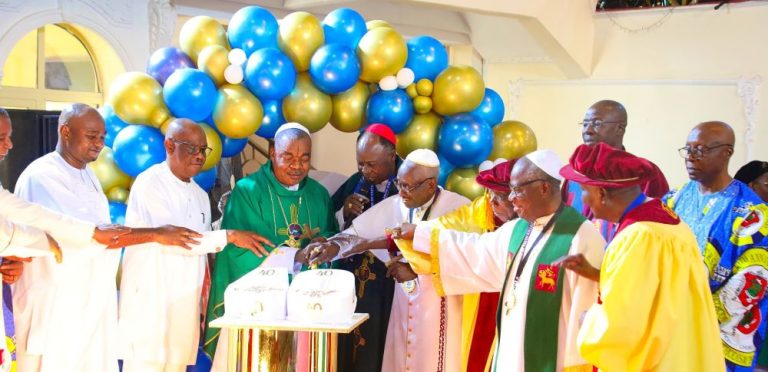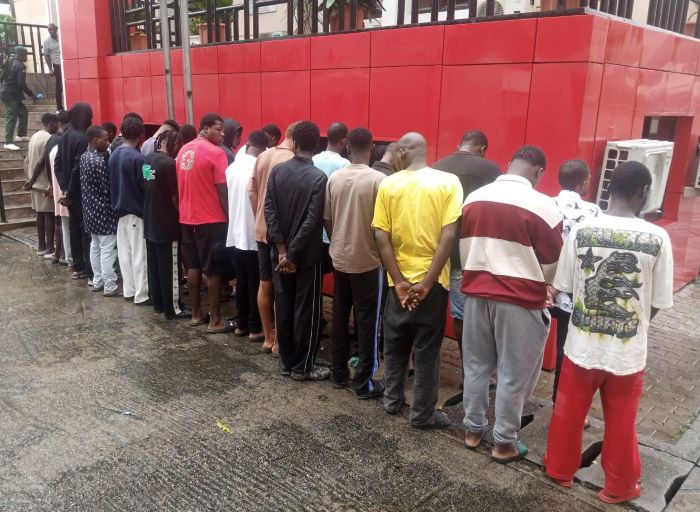By John Egbeazien Oshodi
On January 5, 2022, Channels Television broadcasted an exclusive interview with President Muhammadu Buhari which was aired at 7 pm.
As a result of this recent televised interview the Nigerian media was filled with headings like, “Dementia-ravaged Buhari Couldn’t Remember Names Of Governors Who Visited Him On Farmers-herders’ Clashes”; “Buhari, ravaged by dementia, could not remember the names of the governors who visited him during the clashes between farmers and ranchers.”
In the past, there are other screaming headings like “Buhari Is Suffering From Acute Dementia” – Malcom Omirhobo”; “How Buhari’s Dementia Keeps Nigeria Rudderless As Security, Economy Buckle” and “Buhari’s Dementia is Now a National Emergency.”
I am not a Buhari apologist though, I admire his personal anti-corruption ethics. Just, like I have done with his administration and that of Goodluck Jonathan, I engage issues from the angle of psychological discourse and suggestions, regarding Nigeria’s social-political and institutional challenges.
In all these reports and writings about the President’s cognitive health, none of them come from psychology or medical professional.
As such, to make absolute statements like the ones above without a face-to-face psychological, neurological, or medical evaluation by a certified doctor is inappropriate and unethical.
As a psychological examiner who for many years have done over 5000 cognitive assessments, I cannot by mere image or hearing from others about Buhari’s abilities offer the above type of headings on dementia or other related conditions.
Diagnosing a person, without examining them, is a violation of professional ethics. It is illegal.
The interview with Channels Television’s Maupe Ogun and Seun Okinbaloye, which was pre-recorded interview in response to questions already submitted, included a question about whether the President would support State police. For the records, this writer does.
Buhari, answered that he does not support state police. And stated that
“The governors of ha…ha…ha…ha…Oyo State and the governor of ha…ha… this other state…in Ondo…not Ondo…one other state. I said because the herders were in the forest…let them go and talk to the local leadership about why there is a break in communication. The routes they follow; the forests they confine themselves in.”
President Buhari, who had met with two governors over security issues at the beginning of last year was trying to recall the identities of the Governors who are Seyi Makinde of Oyo State and Rotimi Akeredolu of Ondo State.
Just because Buhari could not immediately recall the identities of the governors does not mean he is suffering from dementia.
It’s normal to occasionally forget recent events, such as where you put your keys or the name of the person you met some time ago or just met.
Now, let’s explain dementia in general terms. Dementia like the type called Alzheimer affects both mental and physical health, as such it is not generally a mental illness.
Dementia is a term that describes a loss of thinking ability, memory, attention, logical reasoning, and other mental abilities.
Dementia is a progressive illness that, over time, will affect a person’s ability to remember and understand basic everyday facts, such as names, places, and dates. Dementia could result when the brain is damaged by injury, disease, or drugs.
The accompanying symptoms can include a decline and loss of memory, concentration, judgment, and the ability to transmit, learn, and problem solve.
It is reasonable to say that dementia is more common as people become older. Dementia is known to affect one in 14 people over 65, and one in six people over 80. It is believed that about one-third of all people aged 85 or older may have dementia but it is not a normal aspect of aging.
The aging process is part of the human experience, which makes our brains undergo changes.
When a brain is affected by dementia, it experiences diminished capabilities to process information. A person with dementia is likely to be overwhelmed by everyday stress.
Normal brain aging may mean slower processing speeds and more trouble multitasking, however everyday memory, skills, and knowledge are stable and may even get better with age.
For persons above the age of 65, the risk of Alzheimer’s disease which is the most common type of dementia becomes higher.
79-year-old Buhari just like America’s president, 79-year-old Joe Biden due to their age, there have been concerns about their health and cognitive wellbeing.
As we know many persons over-50 will experience the “tip of the tongue” problem when a name does not come immediately to the mind but are able to remember words of similar meaning.
Yes, Buhari like Biden does stumble over words, yes, Buhari has difficulty sometimes with digressions that he fails to get back to the original point of the discussion. Buhari might not be a terrific and highly expressive speaker, but that doesn’t mean he suffers from dementia, either.
No one with anything like full-blown dementia can sit down for almost an hour like Buhari did in the channel’s interview or Arise interviews, answering questions without consistently losing his way.
It may not be unusual for some people to call out Buhari for his thick English accent, describe him as a harsh disciplinarian or as a faithful Islamic traditionalist but for some in the media to keep calling him as one with dementia is unwarranted.
Even If Buhari is not forthcoming with details of his illness, he won’t be the first president in the world who kept medical secrets. For example, in America presidents that hid their medical records includes Woodrow Wilson, Franklin D Roosevelt John F Kennedy, and Ronald Reagan.
Nigeria is not the only place where the public does not know much about a president’s illness even though, it important for the people to be informed about it, should the sickness start to significantly affect the job.
Presidents, like everyone, can develop an illness or illnesses common in our world, from the brain to heart disease, anxiety to depression, and more.
The American president, Franklin D. Roosevelt experienced a severe attack of polio, resulting in full paralysis of both legs yet he served there for 12 years.
Ronald Reagan once collapsed and lost almost half his blood volume in a day and fell into the arms of his Secret Service agents, which is equivalent to State Security Service or Department of State Services operatives in Nigeria.
George H.W. Bush, the senior, once had a history of head and lung trauma and known for having several bleeding ulcers, arthritis, and various cysts.
If tomorrow, Buhari is diagnosed with any form of dementia, back, heart, or gastrointestinal ailment by his personal physician, that does not stop him from being a working president.
If on clinical grounds, a president’s health is greatly interfering with their ability to serve their role, I can assure you that the media will know, including the Nigerian media, but it is not the duty of writers and commentators in the media to declare Buhari as mentally or medically unfit for his current position. So, stop it!
John Egbeazien Oshodi who was born in Uromi, Edo State in Nigeria, is an American-based Police/Prison Scientist and Forensic/Clinical/Legal Psychologist. A government Consultant on matters of forensic-clinical adult/child psychological services in the USA; Chief Educator and Clinician at the Transatlantic Enrichment and Refresher Institute, an Online Lifelong Center for Personal, Professional and Career Development. A former Interim Associate Dean/Assistant Professor at the Broward College, Florida. The Founder of the Dr. John Egbeazien Oshodi Foundation, Center for Psychological Health and Behavioral Change in African settings. In 2011, he introduced the State-of-the-Art Forensic Psychology into Nigeria through N.U.C and the Nasarawa State University where he served in the Department of Psychology as an Associate Professor. A Virtual behavioral Leadership Professor at the ISCOM University, Republic of Benin. Founder of the Proposed Transatlantic Egbeazien University (TEU) of Values and Ethics, a digital project of Truth, Ethics, Openness. Author of over 40 academic publications/creations, at least 200 public opinion writeups on African issues, and various books. He specializes in psycho-prescriptive writings regarding African institutional and governance issues.
John Egbeazien Oshodi wrote in via transeuniversity@gmail.com
https://any.peopleandpowermag.com/opinion-does-president-buhari-have-dementia-ask-his-doctors-not-the-media/



